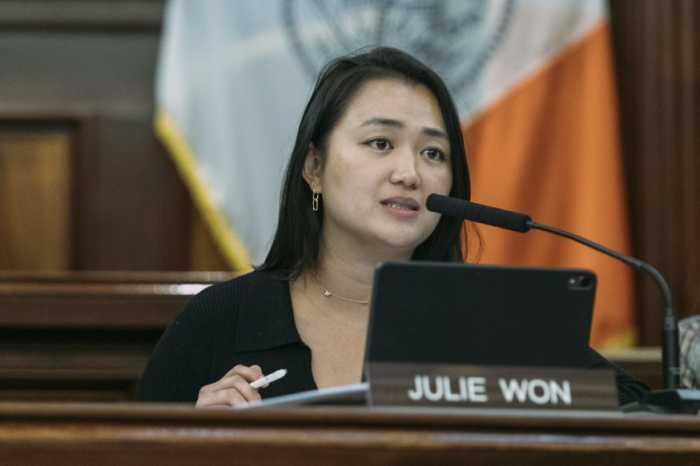Robert Sanchez is president and CEO of Orange and Rockland Utilities, Inc., a leading gas utility and electric company in the energy industry’s current transformation. Prior to his appointment as president and CEO, Mr. Sanchez was senior vice president of corporate Shared services at Con Edison. Mr. Sanchez holds an MBA from Pace University and a Bachelor of Science in electrical engineering from the University of Miami.
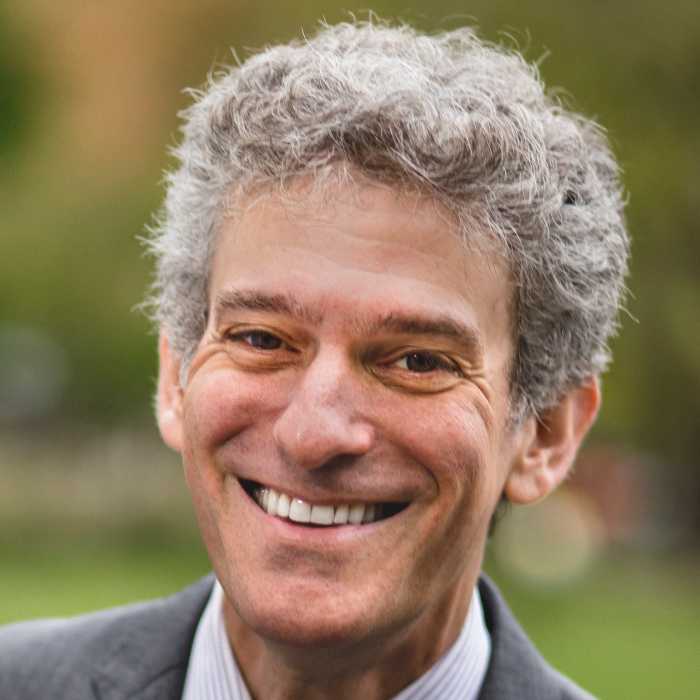
Cecil Scheib
Chief Sustainability Officer, New York University

As chief sustainability officer at one of the largest private universities in the United States, Cecil leads NYU‘s efforts to engage all university stakeholders across 15 global locations to confront climate change. He oversaw the university’s successful carbon emissions reduction by 30 percent (in 2012), and is now working to help NYU reach 50 percent reductions by 2025 and climate neutrality by 2040. NYU is also targeting 25 percent reductions in food-related emissions by 2030.
What does sustainability mean to you?
My six-year-old – and everyone else – should have clean air and water, and grow up with a stable climate. The survival of ecosystems and non-human species matters too. Humans think we’re the only thing that counts. We’re not. Climate change and inequality share root causes – the enrichment of a few while everyone else bears the consequences. Helping students work towards common solutions to both gets me out of bed excited every morning.
Is there one major climate issue your organization is looking to tackle?
70% of NYC emissions and 99% of NYU’s onsite emissions are from buildings. Saving energy makes people more comfortable – not less. NYC buildings are often overheated in winter and frigid in summer, or drafty, or stuffy. Let’s make our indoor environments, where we spend 90% of our time, better so we’ll be healthier and happier. By using energy savings to help pay for these improvements, we can meet our climate needs, too.
What is one thing everyone can do to help protect the environment?
Agriculture is responsible for one-quarter of global emissions. Animal-based protein has 50-200x the climate impact of plant-based proteins. Unlike power grids or building renovations, we can make things better with every meal. It doesn’t mean everyone has to become vegetarian or vegan (though I have been for 34 years). Small diet shifts have huge positive impacts. Try eating smaller portions of animal protein or subbing one meal a week for a veggie alternative.
What steps are your organization taking to ensure a sustainable future?
NYU has taken the Cool Food Pledge to reduce emissions from food served in our dining halls and catering 25% by 2030. This is a big missing piece for students to learn about – that climate change is not just something someone else has to fix. Be thoughtful about what you eat, ride a bike, attend a community board meeting. We can fix climate change – but will we? So let’s be climate optimists!
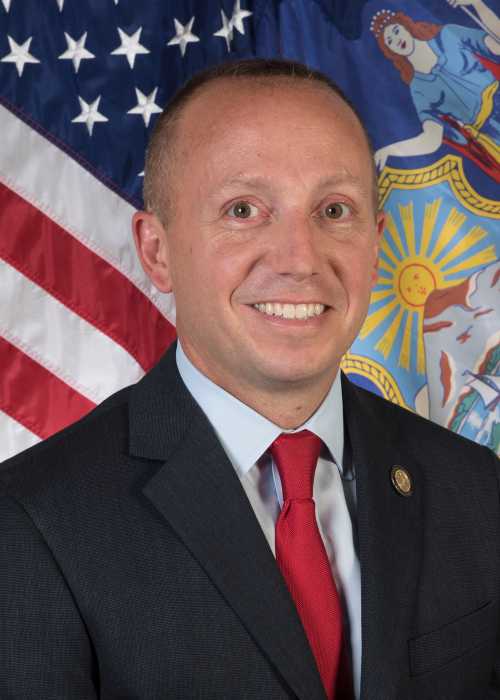
Basil Seggos
Commissioner, State Department of Environmental Conservation

Basil Seggos is the longest serving commissioner of the State Department of Environmental Conservation and its 3,000 professionals. Seggos also served as the State’s deputy secretary for the environment, Riverkeeper’s chief investigator and attorney, and was an officer in the U.S. Army Reserve. Accomplishments during his State service include leadership enacting the Climate Leadership and Community Protection Act, $4.5 billion for clean water infrastructure, and reauthorization and reforms of the State’s toxic cleanup programs.
What does sustainability mean to you?
As commissioner, sustainability means promoting policies that prioritize protecting New York’s precious natural resources, namely our air and water. Sustainability is a cornerstone of New York’s Climate Act, the most ambitious clean energy agenda in the nation to combat climate change. As a father, sustainability means securing a safer, cleaner, and more promising future for my three daughters. The work we do to strengthen sustainability is deeply personal.
Is there one major climate issue your organization is looking to tackle?
Environmental and climate justice. For far too long, low-income communities and communities of color have borne the brunt of environmental burdens due to legacies of discriminatory policies of the past like segregation and redlining. Those same communities now face high vulnerabilities due to climate change. That’s why equity is at the heart of New York’s plan to combat climate change, with statutory requirements for increased investments and pollution reduction in disadvantaged communities.
What is one thing everyone can do to help protect the environment?
Incorporate sustainability into more aspects of our daily lives – it’s amazing how much of an impact individuals can have by simply practicing the core principles of ‘reduce, reuse, and recycle.’ Encourage others to become active and get involved. Environmental protection and climate action take leadership and courage. Challenge yourself to have both and encourage others to make a difference. Finally, inspire the next generation to become future leaders of the environmental movement.
What steps are your organization taking to ensure a sustainable future?
Across the State, DEC professionals work to support programs that protect and preserve our land, air, and water resources and promote sustainability. From improving water quality and enhancing outdoor recreation to working with local governments to strengthen critical infrastructure, nearly everything we do at DEC is designed to ensure a more sustainable future. Most notable is DEC’s leading role in implementing New York’s climate blueprint for building a sustainable green energy economy of the future.
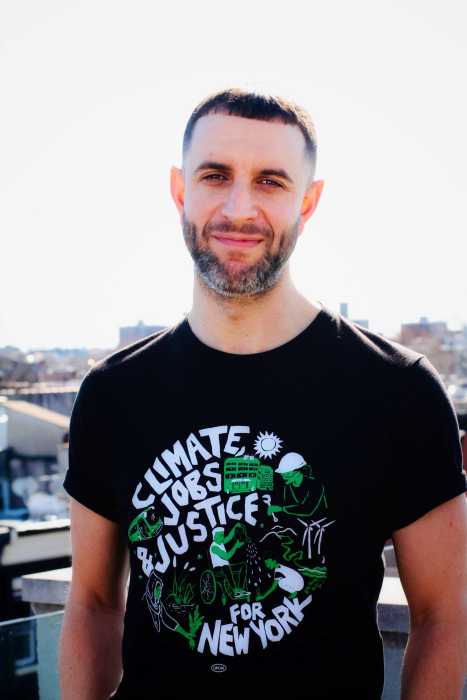
Lucas Shapiro
Interim Executive Director, ALIGN

Lucas Shapiro is the interim executive director for ALIGN, an organization that leads coalitions fighting for climate action, worker justice, and corporate accountability. This year, their city and statewide coalitions are aiming to raise the minimum wage, secure climate investments with strong labor standards, and pass stronger warehouse worker protections. Shapiro has worked with the Frontline Election Defenders, Families United for Racial and Economic Equality, Jews for Racial & Economic Justice, and Mayday Space.
What does sustainability mean to you?
Sustainability means health and wealth for all. Sustainability is an equitable democracy and economy in which our resources and decision-making power are shared, where people and our planet come before profits. Families have access to healthy food, clean water and air, a place to play and spend time together, and a non-extractive relationship with our environment. Workers are paid fairly, have time to rest, and have a voice in their workplaces.
Is there one major climate issue your organization is looking to tackle?
We see climate justice as a worker justice issue. We are looking to ensure that labor unions are engaged and at the table when it comes to climate issues. The working class, and especially communities of color, are the ones most impacted by the climate crisis. We want to ensure that the clean energy economy is built by green, union jobs and that no worker is left behind in our transition to a sustainable future.
What is one thing everyone can do to help protect the environment?
Join an organization that is committed to fighting for climate and worker justice. We need more people on the ground talking to their neighbors and co-workers, calling their legislators, and protesting in the streets to ensure that we get the investments that we need to stop this ongoing climate emergency. Reusable straws just won’t do it. People power and collective action will protect and save this environment.
What steps are your organization taking to ensure a sustainable future?
Our Climate Works for All coalition is organizing to ensure that our city’s private and public buildings (the source of 70% of NYC’s greenhouse gas emissions) are clean and decarbonized. As steering committee members of the NY Renews coalition, we are fighting for the Climate, Jobs and Justice Package — a massive investment for climate action that will create green jobs, invest in renewable energy infrastructure, and ensure a sustainable future for all New Yorkers.
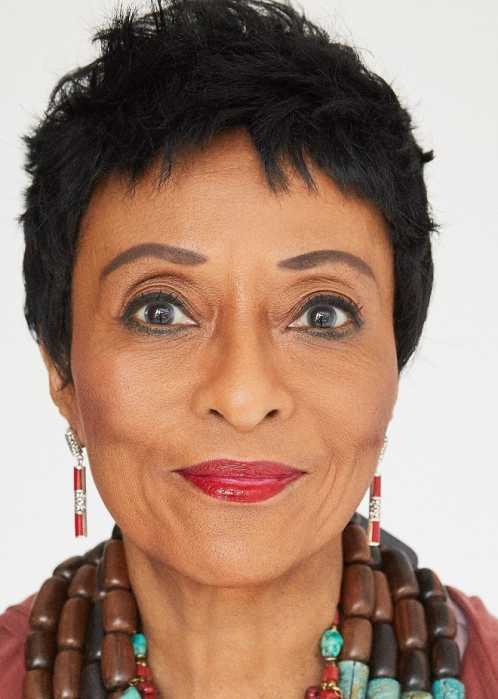
Peggy Shepard
Co-Founder and Executive Director, WE ACT for Environmental Justice

Peggy Shepard is co-founder and executive director of WE ACT for Environmental Justice and has a long history of successfully combining grassroots organizing, environmental advocacy, and environmental health research to become a national leader in advancing environmental policy and the perspective of environmental justice. She’s been named co-chair of the White House Environmental Justice Advisory Council, and was the first female chair of the National Environmental Justice Advisory Council to the U.S. Environmental Protection Agency.
What does sustainability mean to you?
It means little if equity is not included. Not everyone is impacted equally by pollution and climate change. Studies show that race is the leading factor in determining how much pollution you are exposed to. So, when we talk about sustainability, we must talk about equitable sustainability to ensure that everyone can take part and benefit.
Is there one major climate issue your organization is looking to tackle?
Energy justice has become a primary focus of our work, making sure that our transition from fossil fuels to renewable energy is just and equitable so that everyone can participate and benefit. This includes everything from training local residents to install solar panels on affordable housing to passing legislation that ensures those living in homes with environmental hazards such as mold and lead can participate in energy efficiency upgrades.
What is one thing everyone can do to help protect the environment?
Vote. If you have the time and resources, you can get involved with and support environmental groups. But everyone can vote, and voting can help ensure that people who share your views are making the decisions that matter to you.
What steps are your organization taking to ensure a sustainable future?
We are organizing and educating our community about climate justice issues and working to advance climate justice policies and programs at the city, state, and federal levels.
James Shillitto
President, Utility Workers Union of America Local 1-2
James Shillito currently serves as president of Utility Workers Union of America Local 1-2. The Utility Workers Union of America represents 50,000 utility workers in municipal and publicly-traded utilities, with over 7,000 members working in New York State in the electric, gas, steam, water, and nuclear industries. Mr. Shillitto also serves on the Clean Energy Jobs Coalition and the Just Transition Working Group for the Climate Action Council.
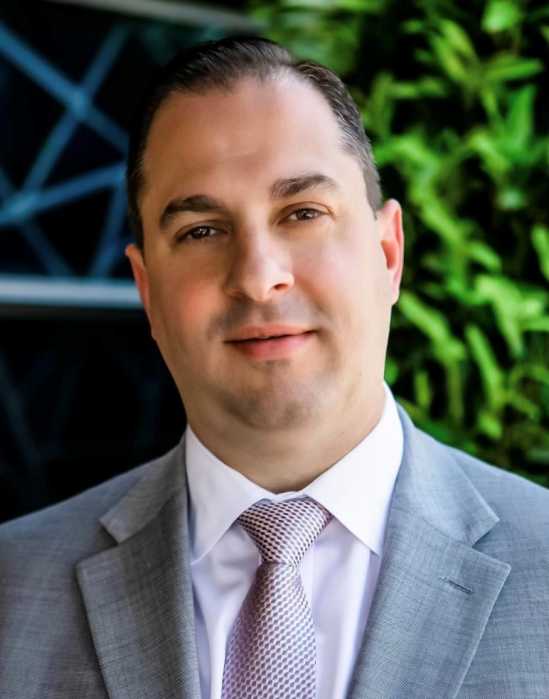
Philip Skalaski
Senior Vice President of Engineering and Energy Services, The Durst Organization

Philip Skalaski, P.E. is the senior vice president of engineering and energy services at The Durst Organization. As the person responsible for managing the mechanical, electrical and plumbing systems across Durst’s residential and commercial properties, Phil has developed, upgraded and operated some of the most efficient buildings in the marketplace. Phil holds a bachelor’s degree in electrical engineering from Hofstra University and is a New York State licensed professional engineer.
What does sustainability mean to you?
At Durst, we believe sustainability means leaving each place better than we found it. Whether that’s a building, a neighborhood or an entire city, our focus is on making a positive impact that improves every aspect of our environment, from carbon emissions to air quality to waste streams. I’ve always believed that we can innovate solutions that have both a positive environmental and business impact.
Is there one major climate issue your organization is looking to tackle?
At Durst, we look at the full life cycle of a building—its construction, its operations and its maintenance—and reducing the carbon footprint at each and every point. We examine the “embodied carbon” required to manufacture materials like concrete or to replace aging systems, and make sure that when we take steps to reduce emissions, we’re doing so in the most impactful way.
What is one thing everyone can do to help protect the environment?
Conserve. I’m passionate about reducing water and energy use. How we manage those two scarce resources will determine what kind of world we pass on to our kids. We need to instill a culture of conservation not just in our businesses, but in our own families.
What steps are your organization taking to ensure a sustainable future?
We’re constantly innovating new ways to reduce our water and carbon footprint, like installing black-water plants that dramatically cut water & sewer use or installing high efficiency chiller plants and heat recovery systems in residential buildings that reduce the amount of energy needed to keep apartments cool and comfortable. We look at ways we can make decisions as a company that help our residents and our commercial tenants live, work, and thrive in a sustainable manner.
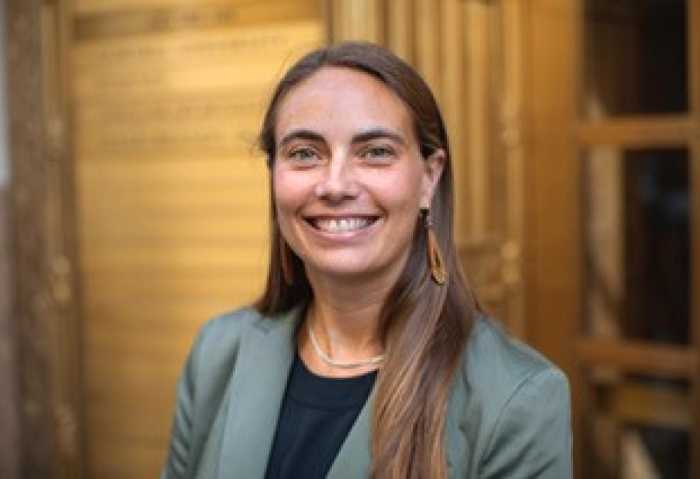
Lara Skinner
Executive Director, Cornell University Climate Jobs Institute

Lara Skinner is the executive director of the newly launched Climate Jobs Institute at Cornell University’s ILR School. Skinner has been at the center of a growing union-led climate jobs movement in the U.S., starting by convening NY unions after Hurricane Sandy. Under Skinner’s direction, the Climate Jobs Institute has designed jobs-led climate plans and helped launch union-led climate jobs coalitions in numerous U.S. states.
Is there one major climate issue your organization is looking to tackle?
Through cutting-edge research and policy and excellent training and education programs, the Climate Jobs Institute is guiding New York’s and the nation’s transition to a strong, equitable and resilient clean energy economy that tackles climate change, creates high-quality union jobs, confronts race and gender inequality, and builds a diverse and inclusive clean energy workforce.
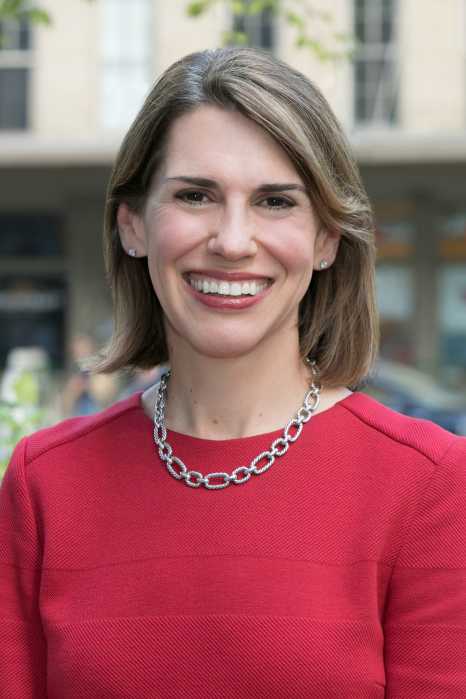
Valerie Smith
Managing Director and Chief Sustainability Officer, Citi

Val Smith was appointed Citi’s first chief sustainability officer in 2019 and has helped grow sustainability efforts at Citi since 2004. She oversees Citi’s Sustainability & ESG team, with responsibility for the bank’s Sustainable Progress Strategy and priority initiatives, including the $1 Trillion Sustainable Finance Goal. Prior to joining Citi, Val spent a decade working in the environmental sector, including the National Audubon Society, Brainerd Foundation, and the Houston Advanced Research Center.
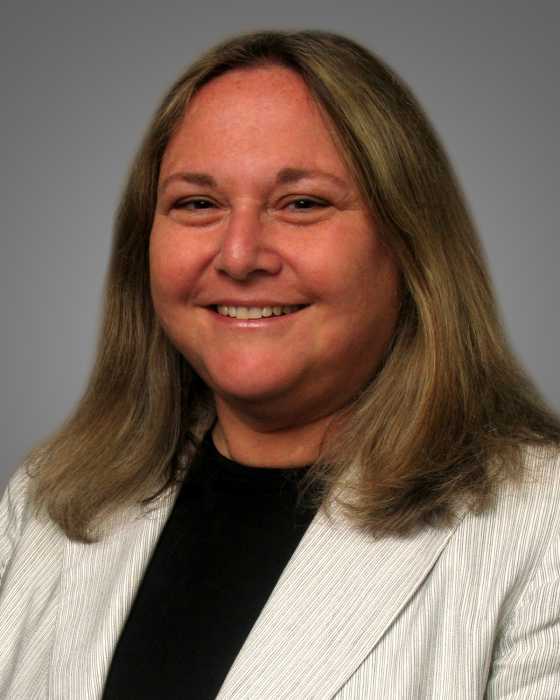
Gail Suchman
Partner, Sheppard, Mullin, Richter & Hampton LLP

Gail Suchman has over 35 years of experience in environmental and energy law and policy, with practice in government, public interest and the private sector, including ten years in the Environmental Protection Bureau of the NY Attorney General’s office and six years as head of environmental justice litigation at New York Lawyers for the Public Interest. At Sheppard Mullin, Gail is a partner in the Energy Infrastructure and Project Finance, and ESG & Sustainability Groups.
What does sustainability mean to you?
Teaching an Environmental Justice seminar at Columbia Law School, we discussed the 1987 UN Brundtland Report, which defined sustainable development simply as “meet[ing] the needs of the present without compromising the ability of future generations to meet their own needs.” In pictorial terms, it is the classic Venn diagram of three overlapping circles—environment, economy and equity, meeting in the center. As the urgency of achieving that “sustainable” center increases, we need great determination and innovation.
Is there one major climate issue your organization is looking to tackle?
I am proud that our firm is working to help our clients transition to the use and development of clean energy technologies and understand the value of establishing ESG principles for guiding their businesses.
What is one thing everyone can do to help protect the environment?
Teaching our children about the importance of keeping lights off during the day unless really dark and dreary; at night, using electricity and heat (to the extent possible) only in rooms being used; taking public transportation whenever possible because even an electric car has environmental impacts; making available to everyone (especially in schools) fresh produce and safe non-bottled drinking water, which reduces packaging, especially plastics, and saves natural resources; and, of course, leading by example.
What steps are your organization taking to ensure a sustainable future?
Sheppard Mullin has an active and robust internal sustainability committee, implementing innovative approaches to saving energy and using procurement to reduce our impact on the environment. In addition, our pro bono work exemplifies the firm’s commitment to helping communities reduce pollution and preserve natural resources. For example, we represent the Ocean Foundation in its efforts to stave off the impacts of plastics and other pollution in the ocean.




